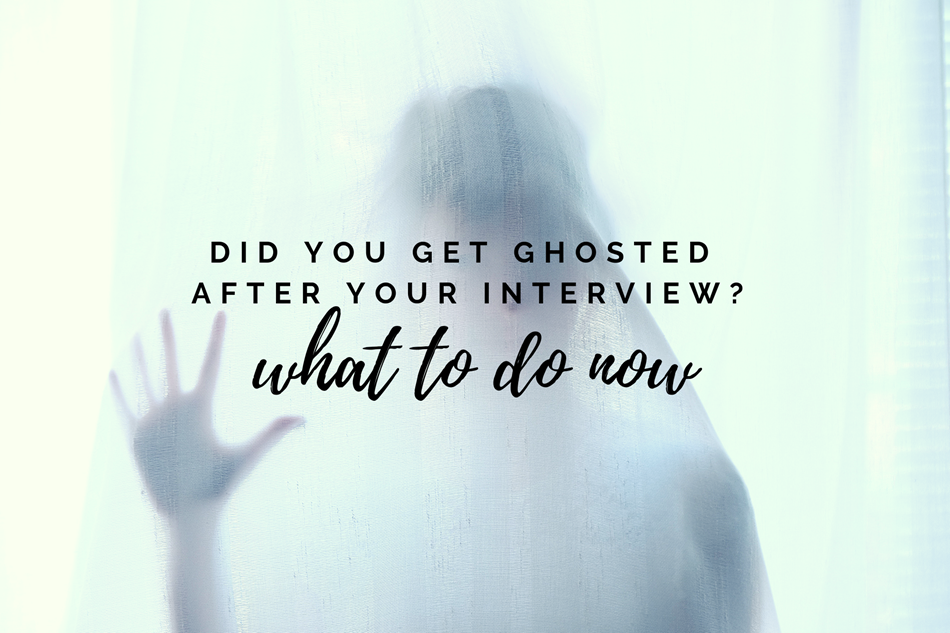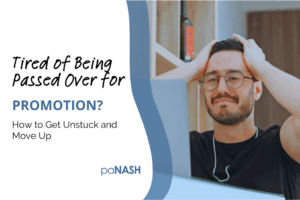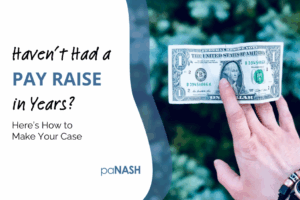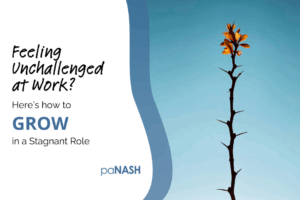Have you ever been ghosted? You know what I’m talking about, when someone unexpectedly ceases all communication with you with no explanation. It’s almost like they dropped off the face of the earth.
This phenomenon typically happens in personal relationships such as romantic liaisons or fledgling friendships.
But it now also exists in working relationships, including the job search. While it’s extremely unprofessional, it does happen.
Job interview ghosting
Most of the time it happens following an interview process. A candidate spends time going through a cumbersome online application process, researching the company, preparing for the interview, traveling to the interview, and sweating through the interview.
The candidate is told at the end of the interview they’ll hear something soon. Then they hear nothing but crickets.
They follow up first with a thank you letter like every good candidate should after an interview.
Still nothing but crickets.
The next week they email to find out if a decision has been made.
Still more crickets.
Another week later they call, only for that call to go unanswered.
This has probably happened to you at one point in your career or another.
It’s happened to me before too, both after a job interview and with a couple of potential clients.
There’s no way to know the reason for the ghosting. All you can do is follow up one more time and then move on.
Console yourself by realizing you probably dodged a bullet since you likely wouldn’t want to work for someone who treats people this way.
What to do next time: a preemptive strike
In your next interview, there are some things you can do to try to protect yourself from ghosting, or at least reduce the chances of being ghosted.
This begins in the very first interview. When it’s your turn to ask questions, one of your questions should be about the timeline for the hiring process.
You want to be as specific as possible in your question in order to receive a specific answer. For instance, instead of asking “When do you plan to conduct second-round interviews?” you should ask,
“What is your deadline for scheduling second-round interviews?”
“Is that deadline firm?” and
“Are you going to let those who didn’t make it to the second round know they won’t be moving forward?”
In the final round of interviews, instead of asking “When do you plan to make a hiring decision?” you should ask,
“What is your deadline for making an offer?”
“How firm is that deadline?” and
“Are you going to notify each person being interviewed of the final decision as a courtesy or just the person receiving the offer?”
These questions are for your own sanity so you can know what to expect and so you’re not sitting around wondering why you haven’t heard anything back.
Click here to find out what other questions you should ask in an interview.
Know when to move on
Keep in mind however that sometimes companies tend to underestimate how long the interview process might take them. Or, deadlines might get pushed back due to other priorities in the company.
Continue to follow up 1–2 weeks after their original deadline.
If after that you still haven’t heard anything, assume they either hired someone else or put a freeze on the hiring process.
Then move on.
And try not to take it personally so you can maintain your confidence. You have to keep your confidence in tact as best you can for your next interview.
Other things you can do:
There are several other things you can do to reduce your chances of being ghosted.
First, avoid doing the things that irritate hiring managers and recruiters. For instance, don’t be late for your interview and don’t be dishonest in your answers or give canned answers.
More importantly, don’t interview for a job you don’t intend to take just to get interview practice. This is unethical and word could easily get around in your industry about you doing such a thing.
Also, indicate at the end of the interview you want the job. So many people fail to say they want the job. Those who do increase their chances of getting the call with the offer.
Next, send a thank you letter to each person you interviewed with, reiterating your interest and what you have to offer the company.
Finally, even if you’ve been ghosted by a company, don’t do the same thing to another company. Just because unemployment is at an all-time low and you may have your pick of offers, this doesn’t give you an excuse to ghost recruiters or hiring managers.
Conclusion
While you can’t completely prevent a company from ghosting you after your interview, using some of the strategies above can help reduce your chances of it happening.
Related posts:
- Dear Recruiters, Treat Candidates the Way You Want to Be Treated
- Can Finding a Job Be Like Finding Love
- The One Surprising Tip That Guarantees a Good Interview
- How to Avoid the 4 Job Interview Mistakes Everyone Makes





